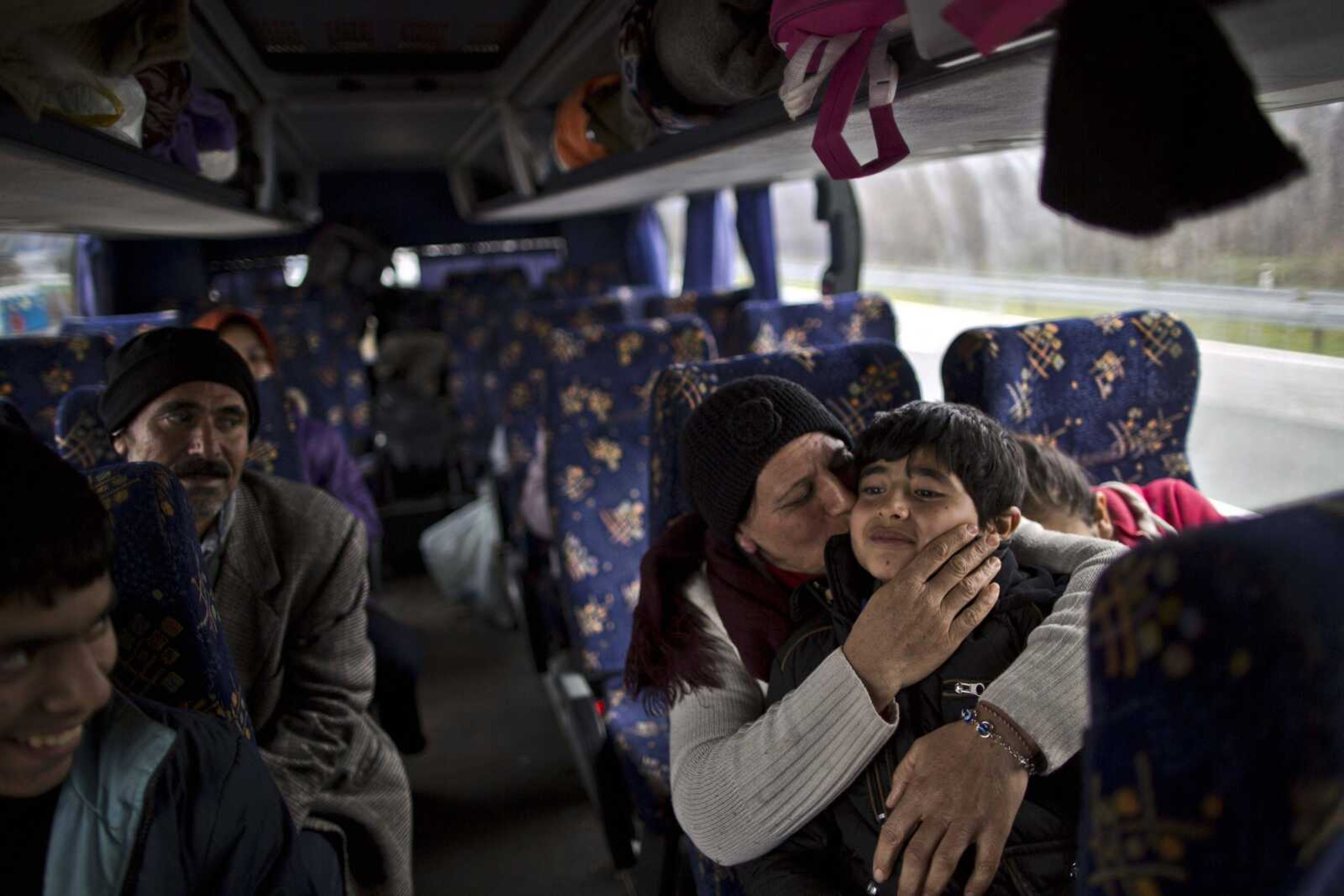GENEVA -- More than 1 million people driven out of their countries by war, poverty and persecution entered Europe in this record-breaking year, migration experts said Tuesday.
With days left in 2015, the Geneva-based International Organization for Migration said 1,005,504 people had entered Europe as of Monday, more than four times as many as last year. Almost all came by sea, and 3,692 others drowned trying to make the crossing.
IOM director-general William Lacy Swing urged European governments to make migration safer.
"We know migration is inevitable. It's necessary, and it's desirable," he said, adding: "Migration must be legal, safe and secure for all -- both for the migrants themselves and the countries that will become their new home."
The IOM compiles the numbers from government records in Greece, Italy, Bulgaria, Spain, Malta and Cyprus, spokesman Joel Millman said. He noted the real number of people entering Europe may be larger, because authorities are struggling to track all arrivals, given the sheer volume.
Most people entered Europe via Greece, which took in 820,000 people this year, nearly all of them crossing from Turkey by boat across the Aegean Sea.
Another 150,000 came into Italy across the Mediterranean from north Africa.
Smaller numbers crossed from Turkey by land into neighboring Greece and Bulgaria. Much smaller numbers arrived by boat to other Mediterranean countries.
Others -- not counted in the IOM tally -- crossed into Europe across other borders, such as a route from Russia to Norway, where a few thousand people have crossed by bicycle.
About half of the people entering Europe were Syrians, while 20 percent were Afghans and 7 percent Iraqis, IOM said.
Many fleeing war and persecution likely will be granted refugee status. Others who came to find work risk being sent back.
Of the deaths, 2,889 were people traveling from north Africa toward Italy, the IOM said, 706 drowned trying to cross the Aegean to Greece and 72 died trying to reach Spain.
Some perished in shipwrecks that killed hundreds. The bodies of others, such as 3-year-old Aylan Kurdi, washed up on Greek shores, shocking the world and bringing promises of action from European authorities.
The war in Syria was key in driving the numbers of people moving into Europe to levels not seen in half a century. European governments have struggled to agree on a response, arguing about how welcoming they should be and how best to manage the flows.
Over the summer, some eastern European countries opened and closed their borders, leading to widespread confusion and frustration, before a relatively orderly system emerged during the fall. Hungary, in particular, angered its neighbors by building a fence to keep people out, setting off a chaotic rush to find alternate routes through countries ill-equipped to handle the influx.
Germany and Sweden have welcomed the largest numbers of refugees.
Germany has seen about 1 million migrants arrive this year, but that figure includes large numbers of people from eastern European countries who could be sent back.
With cold weather making journeys more dangerous, arrivals have slowed, but people still are showing up in Greece, and there's no sign the flow will abate when temperatures start rising in the spring. IOM said more than 4,100 people arrived on the Greek islands Monday.
Connect with the Southeast Missourian Newsroom:
For corrections to this story or other insights for the editor, click here. To submit a letter to the editor, click here. To learn about the Southeast Missourian’s AI Policy, click here.







